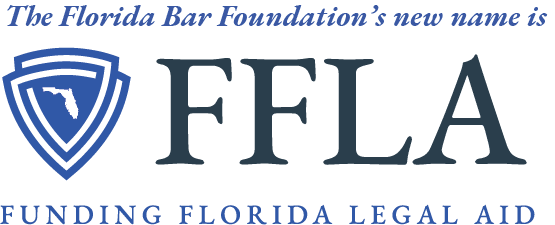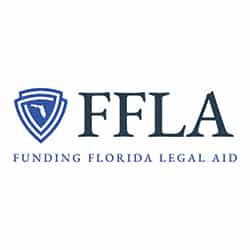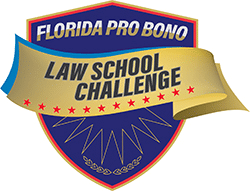Work has begun on a reinvigorated technology initiative that will help The Florida Bar Foundation further live up to its “Leadership and Funding for Justice in Florida” tagline.
“Many people are aware of the Foundation’s role as a funder but are less familiar with its significant leadership role when it comes to access to justice, and particularly the role of technology in making the justice system more accessible,” said Melissa Pershing, the Foundation’s director of grant programs.
The Foundation launched a technology effort in 2009 with the acquisition and statewide deployment of case management system software called LegalServer, which is in use by 27 of the Foundation’s 30 general support grantees. The Foundation is now exploring the expansion of its strategic investment in technologies designed to increase access to civil legal assistance and support high-quality, collaborative advocacy.
In January, the Foundation reimbursed the registration cost for grantees attending the national Technology Initiative Grants (TIG) conference hosted by the Legal Services Corporation (LSC) in Jacksonville. The conference focused exclusively on the use of technology in the legal aid community. The Foundation also contracted with consultant and former LSC TIG staff member Joyce Raby to facilitate the Florida group’s discussions at the TIG conference, to manage the statewide technology planning process and to provide project management expertise. A possible next step under consideration is to create a technology advisory council with tech-savvy representation from grantees, court, law firm, business and other Florida entities to provide further input.
Pershing obtained a grant from the Center on Court Access to Justice for All, a project of the National Center for State Courts, that enabled the Foundation to send a delegation to Chicago March 18-19 to visit staff of Illinois Legal Aid Online, recipient of the 2014 Law Technology News Innovation Award in the pro bono category, as well as the Illinois Coalition for Equal Justice. The delegation included representatives from the Foundation, The Florida Bar Vision 2016 Committee on Access to Justice, the Florida Courts Technology Commission, the Palm Beach County Clerk & Comptroller’s Office, and the Office of the State Courts Administrators.
The group learned about best practices exemplified by Illinois Legal Aid Online, the legal self-help centers in every Illinois county, and how these two programs work independently and in collaboration with each other. In Illinois, legal self-help centers are collaborative projects with a local planning committee and include free legal information websites as well as spaces in the county courthouse or in public libraries where pro se litigants can access online legal resources and referral information. Illinois Legal Aid Online is responsible for the website on which the self-help centers are based and provides training and support to center partners, including court staff and librarians.
An evening reception for the Florida delegation enabled them to gain further insights from members of the Illinois legal community, including Chief Justice Rita Garman and Justice Mary Jane Theis of the Illinois Supreme Court, as well as Mike Tardy, director of the Administrative Office of the Illinois Courts.
The trip helped participants understand and better anticipate the potential impact to Florida’s legal service providers and court system of the implementation of these two models.
Julio Jaramillo, the Foundation’s first vice president and a member of The Florida Bar’s Vision 2016 Committee on Access to Justice, was among those who made the trip to Chicago.
“With funding in short supply, leadership is critical, so the Foundation wants to help move Florida forward with technology that will enable the legal services system, with its increasingly limited resources, to serve clients as efficiently as possible,” Jaramillo said. “We saw some great examples of how to do that. At the same time, we realize there is still much to be done outside the technology realm when it comes to access to justice.”
In addition to its technology initiative, the Foundation is engaging in a more comprehensive assessment of the statewide legal services delivery system that includes an analysis of the Foundation’s role in its future. It has contracted with Bonnie Allen, a Florida native and former director of the ABA Center for Pro Bono, to conduct this assessment through a process of stakeholder interviews and national best practices research. Allen and Raby will share information with each other related to statewide technology systems, and Allen will be sharing pertinent information with the Florida Bar Vision 2016 Committee on Access to Justice, led by past Florida Bar Foundation President Adele Stone.
“As we strive to identify opportunities for improvement, the Foundation intends to work closely with all key stakeholders, including The Florida Bar, the courts, and legal services providers so that Florida can do its best to deliver on the promise of justice for all, even when times are tight.” Jaramillo said.



